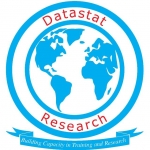|
|
Training Course on M&E, Data Management and Analysis for in Food Security and Nutrition Programmes
USD 1,000 |
Venue: Nairobi, Kenya
The interest in information on the effect of approaches, projects and interventions on food and nutrition security is growing rapidly. The public sector, including civil society and governments, frequently monitor data on food and nutrition to determine the existing trends and conditions, and the impact of interventions and policies.
International agencies, NGOs, governments and other agencies carry out monitoring, evaluation, and impact assessments regularly. About this fact, this course lays emphasis on the need to carefully select the right set of indicators when designing information support systems at various administrative levels as well as the skills required for the analysis and interpretation of collected data.
The course adopts an interactive training approach and provides participants with the chance to learn from each other as well as from the expert facilitators.
Duration: 5 days
Course Outcomes
- Understand the role of food security and nutrition for attaining the MDGs
- Gain fresh insights on the values of participatory & learning-oriented design, monitoring, and evaluation about food security and nutrition.
- To strengthen your competence in designing an M&E-system
- Have clear ideas for the improvement of M&E systems and impact assessment for food security and nutrition.
Course Content
Module I: Introduction
- Food Security frameworks and concepts M& E Fundamentals
- Data sources collection and use
- Defining a good M&E system
- Identifying the challenges that face Monitoring and evaluation in the Food Security and Nutrition sector
- Including M&E in food security program design
- Indicators
- M&E Frameworks
- M&E Plans
- Participatory M&E systems
- Relating Monitoring and evaluation to your project cycle
- What is M&E?
Module II: M&E Frameworks
- Developing and operationalizing M&E frameworks
- Linking M&E frameworks to indicators
- M&E Frameworks
- M&E Frameworks basics for Food Security and other programs
- M&E in Food Security and Nutrition context
- Monitoring results and impacts using a logical framework
- Using data
Module III: Gender M&E
- Exploring gender in M&E plans
- Gender considerations for data collection
- Introduction to M&E in Gender and Food Security
- Selecting indicators to measure gender-related outputs and outcomes
- Prioritizing gender in M&E plans
Module IV: Step by Step approaches to M&E
- Agree on and design core documents to setup an M&E system
- Agree on field monitoring data collection and management process
- Agree on Monitoring data analysis process
- Agree on process for monitoring data utilization and reporting
- Agree on process of evaluation management
- Agree on the principles and purpose of the project M&E system
- Establish project M&E system
- Review and revise M&E plans based on progress
Module V: Interpreting and Communicating results for M&E
- Communication and reporting for M&E
- Contemporarily methods of dissemination
Module VI: Data collection, management and data quality
- Data collection methods (quantitative and qualitative)
- Data collection versus data analysis
- Data quality and data management
- Data quality dimensions
- Double counting
- Functional areas of data management systems
- Increasing questionnaires response rates
- M&E field trips
- Obtaining data from social media
Module V: ICT tools for data collection, monitoring and evaluation in food security and nutrition
- Case study
- Dashboards; data management analytics, and stakeholders’ access
- Data collection implementation models
- ICT innovations
- ICT tool for Data processing
- Key choice of application to collect data in rural areas
- Using Mobile phones for data collection
Module VI: Data demand for food security and nutrition programs
- Data demand
- Data use frameworks and key concepts
- Information availability
- Information use
Module VII: Introduction to Data analysis Food Security and Nutrition Programs
- Basic analysis
- Data analysis key concepts
- Introduction
- Types of variables
Module VIII: Summarizing data
- Graphs and charts for continuous variables
- Graphs and charts for dichotomous and categorical variables
- Graphs and charts for ordinal variables
- Numerical summaries for discrete variables
- Tables for categorical variables
- Tables for dichotomous variables
- Tables for ordinal variables
- Tabulations for summary statistics for continuous variables
Module IX: Introduction to qualitative data Analysis
- Coding the data
- Introduction to qualitative data analysis software (NVivo)
- Organizing your data
- Planning for qualitative data analysis
- Reviewing the data
Module X: Quantitative data Analysis
- Basics for statistical analysis
- Choosing the correct statistical test
- Comparison of Data analysis packages
- Confidence intervals
- Hypothesis testing
- Hypothesis testing versus confidence intervals
- Interpreting the data
- Planning for qualitative data analysis
- Testing for normality of data
- Tests of statistical significance
Module XI: Assessing Programme Impact on Food Security
- Impact Assessment in Programme Design
- Introduction to Impact Assessment
- Programme Design Implications
Module XII: Methods and Approaches for Assessing Impact
- Overview of Methods and Approaches
- Qualitative Methods
- Quantitative Methods: Household Surveys
- Quantitative Methods: Secondary Data
- Selecting Methods and Approaches
Methodology
The instructor led trainings are delivered using a blended learning approach and comprises of presentations, guided sessions of practical exercise, web-based tutorials and group work. Our facilitators are seasoned industry experts with years of experience, working as professional and trainers in these fields.
Key Notes
- The participant must be conversant with English.
- Upon completion of training the participant will be issued with an Authorized Training Certificate
- Course duration is flexible, and the contents can be modified to fit any number of days.
- The course fee includes facilitation training materials, 2 coffee breaks, buffet lunch and A Certificate upon successful completion of Training.
- One-year post-training support Consultation and Coaching provided after the course.
- Payment should be made at least a week before commencing the training, to Datastat Consultancy Ltd account, as indicated in the invoice to enable us to prepare better for you.
| Nairobi, Kenya | Sep 02 - 06 Sep, 2024 |
| USD 1,000.00 | |
Sammy Gathuru 0724527104
Related Courses
 Training Course on Crisis Preparation and Management
Training Course on Crisis Preparation and Management
5 days, 02 - 06 Sep, 2024
Datastat Research Center
 Training Course on GIS Mapping for Disaster Risk Management
Training Course on GIS Mapping for Disaster Risk Management
5 days, 02 - 06 Sep, 2024
Datastat Research Center
 Training Course on Water, Sanitation and Hygiene in Emergencies
Training Course on Water, Sanitation and Hygiene in Emergencies
5 days, 02 - 06 Sep, 2024
Datastat Research Center




